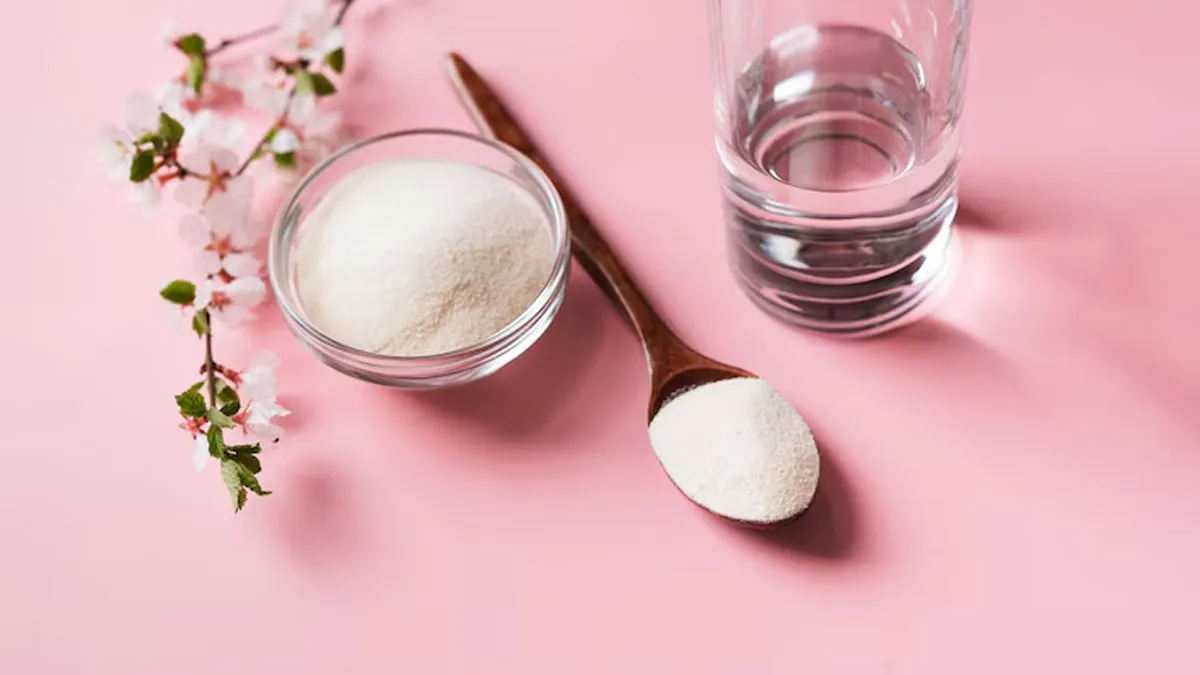
One of the most buzzing words in the beauty world right now is collagen. From supplements to creams, there are numerous products that claim to contain collagen, while skincare influencers continue to emphasise why this protein is the ultimate secret to achieving youthful, glowing skin. Along with the hype, there is also misinformation doing the rounds.
What’s true and what’s not – nobody seems to know well enough.
Read: 5 Best Sunscreens for Children in India: Safe and Effective Options for 2025
To demystify and understand collagen better, here are 10 common myths and facts about collagen.
Fact: Collagen is a protein that’s necessary for many other body parts.
Collagen supports joints, bones, muscles, and even gut health. This is why athletes and people with joint issues often take collagen, too.
Fact: Collagen works quite slowly, and you may need 8 to 12 weeks of consistent use to finally start seeing any results.
Collagen helps improve skin elasticity and makes your skin look more hydrated.
Fact: One of the most common collagen myths is that it is only something people need when they’re much older. Collagen production starts declining as early as one’s mid-20s.-1755755267740.jpg)
However, it’s definitely more noticeable with age. Starting collagen support earlier can help slow down visible signs of ageing.
Fact: Collagen molecules are too large to penetrate the skin. Topical collagen works more as a moisturiser, keeping skin hydrated and helping with fine lines, but it won’t directly rebuild collagen. Collagen is something the body needs to produce.
Ingredients like retinol and peptides are better at stimulating natural collagen production.-1755755289215.jpg)
Ingestible collagen, in the form of supplements, is usually the best way for the body to get collagen. A balanced diet also helps with the production of collagen in the body. Regular exercise, adequate sleep, and sunscreen use also contribute to collagen production in the body.
Not everyone mandatorily needs collagen supplements.
Fact: It is true that collagen is found in animal sources of food, like fish or chicken. Plant-based “collagen boosters” don’t provide collagen directly; instead, they contain nutrients (like vitamin C, zinc, and amino acids) that help the body make more collagen naturally.
Read: 10 Best Natural Oils for Healthy, Glowing Skin
What’s key to note here is that collagen is something the body does produce, and a healthy lifestyle will ensure you don't need supplementation. However, understanding the difference between myths and facts helps you make smarter choices, whether you’re considering lifestyle choices or adding supplements to your routine.
Have you tried ingestible collagen? Tell us in the comments below.
Also watch this video
Herzindagi video
Our aim is to provide accurate, safe and expert verified information through our articles and social media handles. The remedies, advice and tips mentioned here are for general information only. Please consult your expert before trying any kind of health, beauty, life hacks or astrology related tips. For any feedback or complaint, contact us at compliant_gro@jagrannewmedia.com.